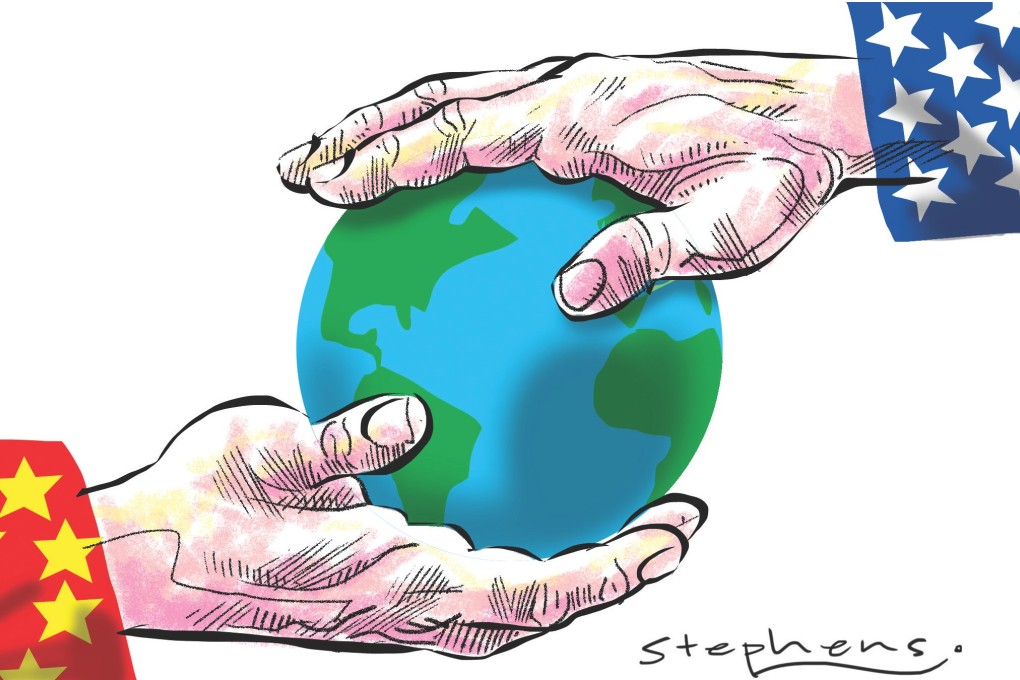How China's rise is revealing the cracks in US claims to legitimacy as global leader
Danny Quah says China can provide a new narrative to lead, without even needing to mention power

China's currency recalibrations have jolted global markets, as did America's 2013 "taper tantrum", when then US Federal Reserve chairman Ben Bernanke said the fed might slow the rate of bond purchases. China is seeking inclusion of its currency in the International Monetary Fund's Special Drawing Rights on the way not only to renminbi internationalisation, but also to challenging the US dollar as world reserve currency. As if this weren't enough, China has also set up the Asian Infrastructure Investment Bank (AIIB) and was key in putting together the BRICS development bank.
Taken together, these reflect the largest disruption yet to an international financial architecture in place since the early 1950s. Yet again, China's rising power is plain.
For some observers, this sets off alarm bells, and they are puzzled why the rest of the world isn't more concerned: "China's rise directly challenges America. Competition between the two is inevitable. Just as America dominates the Western Hemisphere, China will aim to dominate Asia, and America and China will each seek to contain the other. As China continues its ascent, the likelihood of war with America only ever grows."
The capacity to provide the world its global public goods is no longer unique to the US, nor is it obviously America's to wield
Such observers are not unique to one side or the other, but include both Chinese - Yan Xuetong - and American (John Mearsheimer) writers, and I paraphrase them, but only just.
Whatever idealists might suggest, a battle for world leadership is set and has been in train for a while.
In his book Joseph Nye described how the "American century" emerged in the 1940s partly from its unique capacity to provide the global public goods the world needed. Nye masterfully showed us the devastating reach of his concept of soft power: that influence is more important than military power and that domination doesn't mean leadership. He reminded us how Singapore's Lee Kuan Yew had once told him that America would always be ahead of China: while China might boast a population of 1.3 billion people, America could draw on the talents and goodwill of more than seven billion.
But, in opposition to Nye's argument, that capacity to provide the world its global public goods is no longer unique to the US, nor is it obviously America's to wield. The world's economic centre of gravity used to sit off the eastern seaboard of the US, but no longer. Many of the world's problems require global cooperation: no single nation by itself, certainly not the US, can take on the problem of global climate change, cybersecurity or international pandemics. That unique capacity that started the American century is no more. If the century is to remain American, the US will have to be a genuine leader, not just a unilateral doer.
